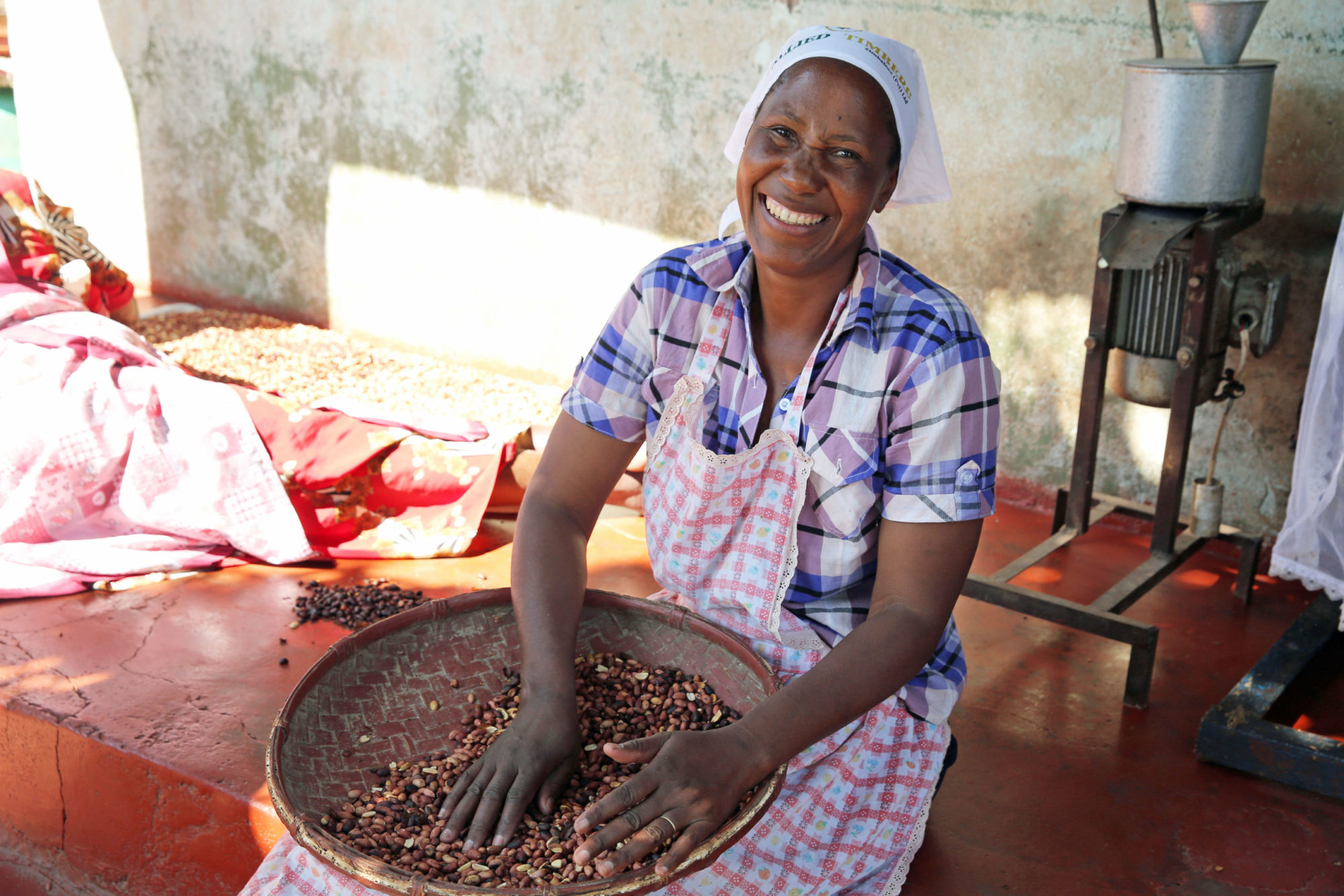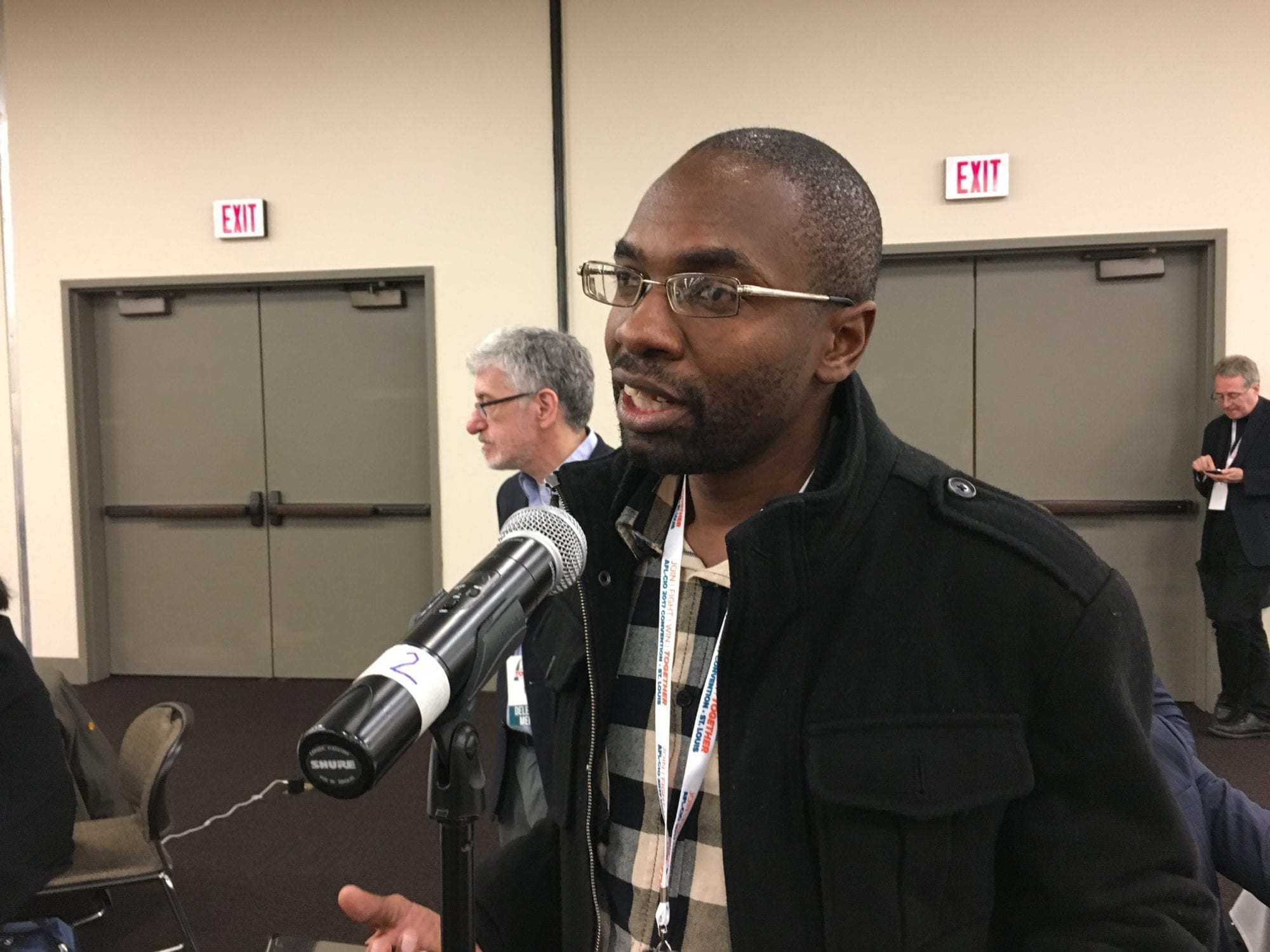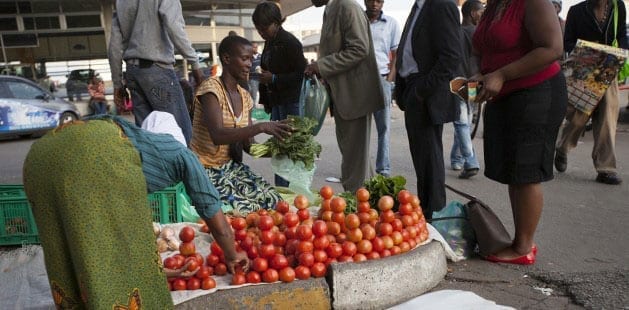Hundreds of women in western Zimbabwe who have waged a week-long sit-in at Hwange Colliery Co. Ltd. (HCCL), demanding unpaid wages for their husbands who labor in the company’s coal mines, say they are set to march to tourist-packed Victoria Falls. There, says the...

In Zimbabwe, the Solidarity Center supports training to educate and mobilize working women, who comprise the majority of economically-struggling workers in the informal sector. Credit: Solidarity Center/Jemal Countess
The Solidarity Center supports efforts by pro-worker groups such as the Zimbabwe Congress of Trade Unions (ZCTU) and its allies in Zimbabwe, where the trade union movement creates space for independent action and dialogue despite government intimidation.
Leaders and members of the country’s union movement, the largest and most vocal civil society organization in the country, often are targets of violence, and unions face legal and bureaucratic attacks that essentially deny working people their fundamental rights to freedom of association and collective bargaining.
The Solidarity Center supports research by Zimbabwe’s independent economic think tank, LEDRIZ (Labor and Economic Development Research Institute of Zimbabwe), which provides unions with reliable information to take into collective bargaining negotiations with employers, and bolsters their advocacy efforts with state and local officials on behalf of the millions of Zimbabweans struggling to earn a living.
The Solidarity Center supports training to educate and mobilize working women, who comprise the majority of economically-struggling workers in the informal sector, and with Solidarity Center support, the ZCTU and the Zimbabwe Chamber of Informal Economy Associations (ZCIEA) organize these workers so they have a strong collective voice to champion their rights.
Economy in Crisis: Jobs in Zimbabwe ‘Aren’t Paying’
In Zimbabwe, “there is no economy to talk about in the moment,” says Peter Mutasa, president of the Zimbabwe Congress of Trade Unions (ZCTU), a Solidarity Center ally. “Everyone is living on subsistence and selling in the streets. Those jobs are not paying. They don’t...
Zimbabwe Vendor Ban Targets Vulnerable Workers
The government in Zimbabwe is moving to ban market vendors in Harare at a time when more than 90 percent of the workforce labors in the informal economy and 85 percent or more Zimbabweans are seeking decent work. “People who are into street vending are not into it for...



